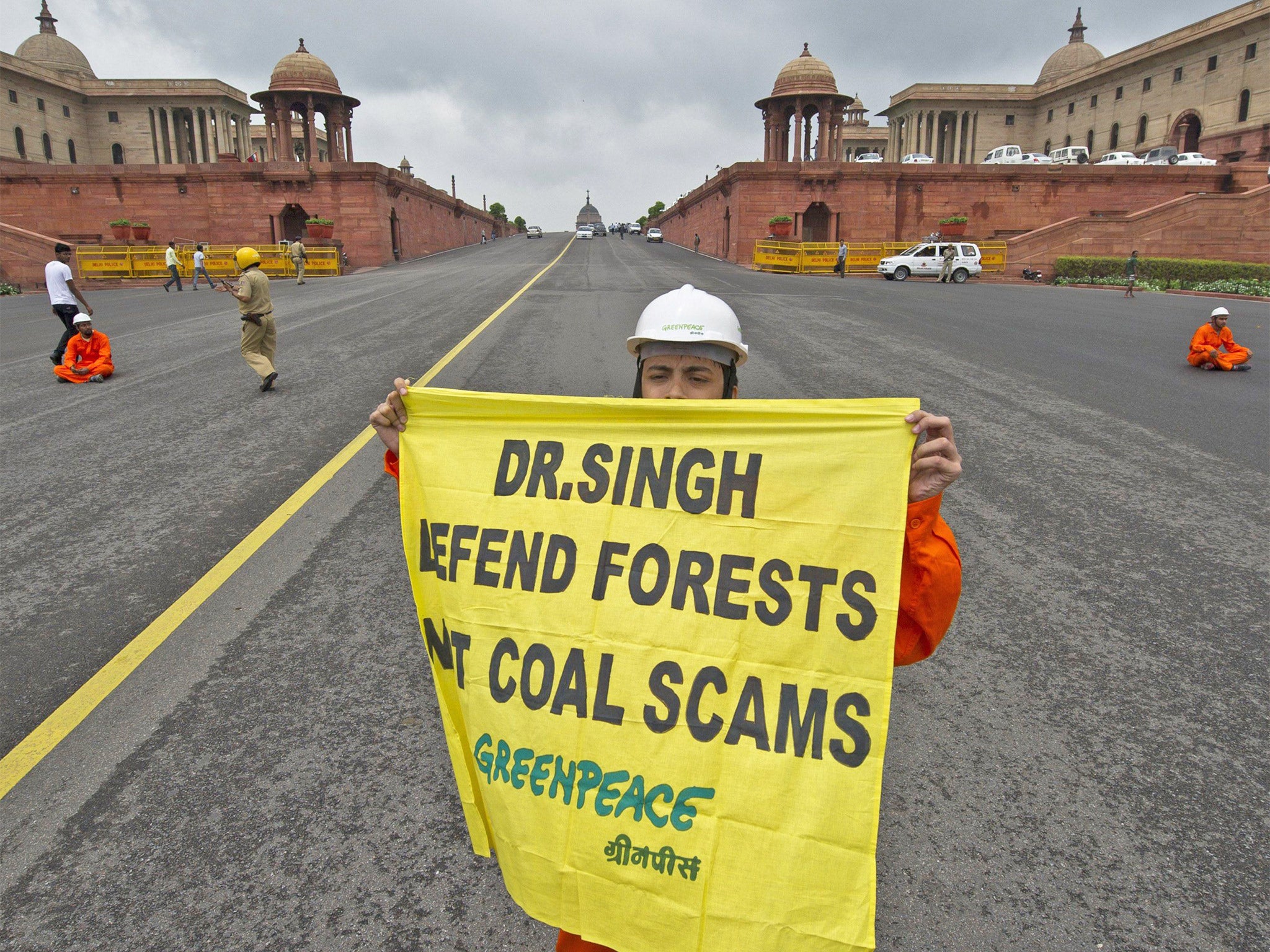Greenpeace's operation in India facing closure after government freezes its bank account
Experts point out the development was alarming both for India and for campaigning worldwide

Your support helps us to tell the story
From reproductive rights to climate change to Big Tech, The Independent is on the ground when the story is developing. Whether it's investigating the financials of Elon Musk's pro-Trump PAC or producing our latest documentary, 'The A Word', which shines a light on the American women fighting for reproductive rights, we know how important it is to parse out the facts from the messaging.
At such a critical moment in US history, we need reporters on the ground. Your donation allows us to keep sending journalists to speak to both sides of the story.
The Independent is trusted by Americans across the entire political spectrum. And unlike many other quality news outlets, we choose not to lock Americans out of our reporting and analysis with paywalls. We believe quality journalism should be available to everyone, paid for by those who can afford it.
Your support makes all the difference.Greenpeace’s operation in India faces “imminent” closure as a government freeze on its bank account “strangulates it by stealth”, the group warned in a development experts said was alarming both for India and for campaigning worldwide.
The organisation is still reeling from its experience in the Arctic in the autumn of 2013, when 30 of its members were imprisoned for protesting about oil exploration being carried out in the region by the Russian giant Gazprom.
Greenpeace now faces the prospect of having to leave a country against its will for the first time in its history, when the money effectively runs out at the end of the month.
The group has paid staff and office costs in India until the end of May but will be unable to access funds for next month’s costs. “The threat facing Greenpeace India is unprecedented in the global organisation’s 44-year history. What’s at stake here is not just the fate of Greenpeace India and its staff but the fundamental right to free speech and peaceful protest in the world’s largest democracy,” said Greenpeace UK executive director, John Sauven.
India blocked Greenpeace’s bank accounts last month, accusing it of violating tax laws – a charge the organisation rejects. India also accuses the group of working against the country’s economic interests, in part by stalling large infrastructure projects through protests.
Unless the government reverses the decision, Greenpeace says it will have to shut its Indian operation, with the loss of 340 jobs. This would also put an end to domestic Indian campaigns on sustainable development, environmental justice and affordable green energy.
The Indian government is thought to be angry about Greenpeace shining a light on air pollution, accusing it of watering down environmental regulations after allowing industries to operate closer to protected green areas and promoting pesticide-free tea.
Samit Aich, Greenpeace India’s executive director, told his staff yesterday to prepare for the shutdown of the branch after 14 years. “We have one month left to save Greenpeace India from complete shutdown and to fight the Home Ministry’s indefensible decision to block our domestic accounts,” he said.
India’s Home Ministry has hit Greenpeace with a string of penalties in recent months, including overseas travel bans, most of which have been overturned by the Delhi High Court. Last month, it blocked access to domestic bank accounts funded from about 77,000 Indian citizens.
Greenpeace is challenging the government in court but is concerned that the legal process could last for well over a month, by which point the organisation will have collapsed. The ban imposed by the Indian government prevents Greenpeace from accessing its Indian accounts and makes it illegal for the organisation to receive any funds from overseas.
Priya Pillai, a Greenpeace India campaigner whose travel ban was overturned in March, said: “I fear for my own future, but what worries me much more is the chilling message that will go out to the rest of Indian civil society and the voiceless people they represent. If Greenpeace is first, who is next?”
Tom Burke, a former director of Friends of the Earth and now chairman of the E3G sustainable development charity, added: “The broader issue here is that governments around the world are finding it more and more difficult to deliver as the public gets more connected and better informed. People are much more aware... which is having the knock-on effect of putting increasing pressure on groups such as Greenpeace.”
Join our commenting forum
Join thought-provoking conversations, follow other Independent readers and see their replies
Comments